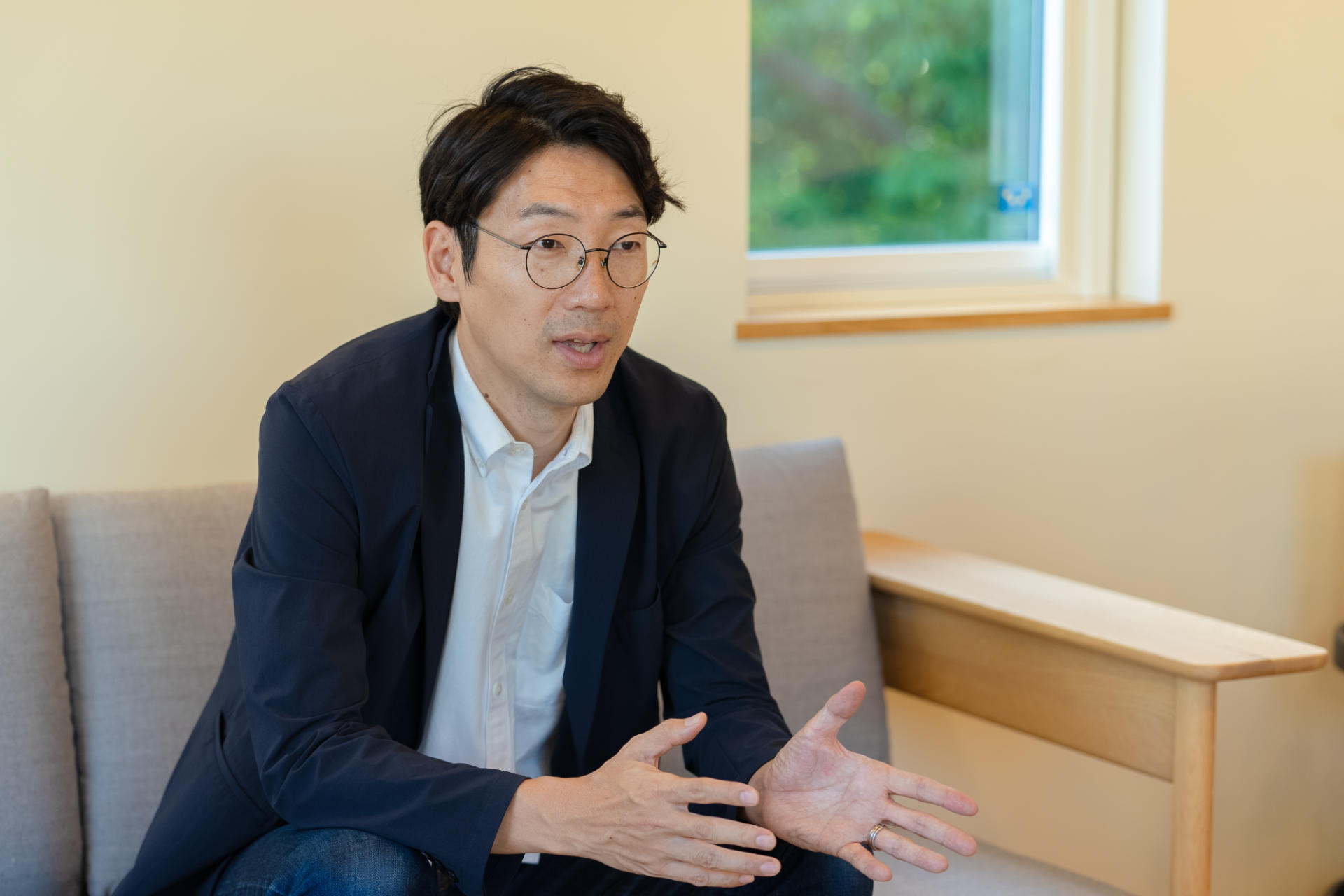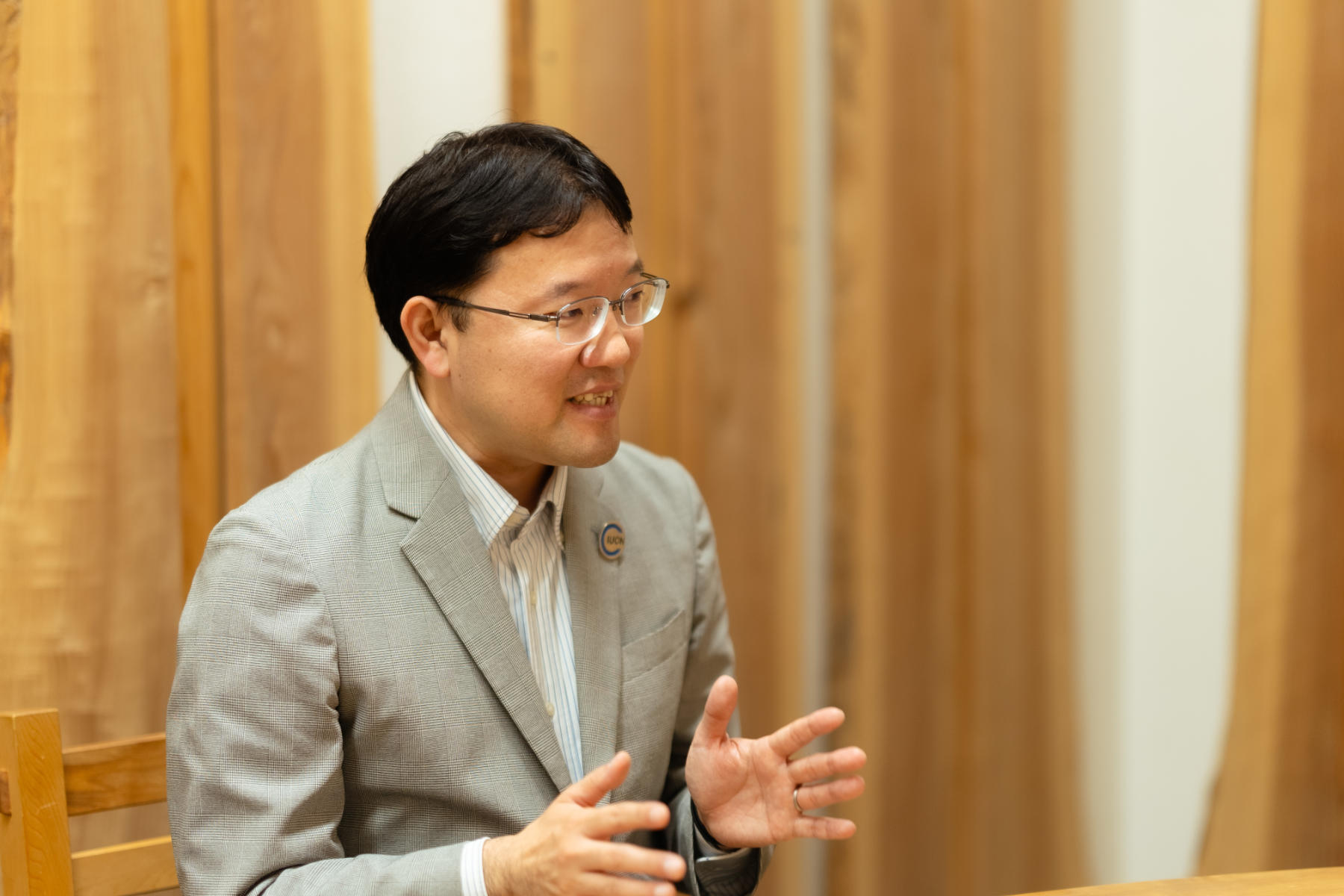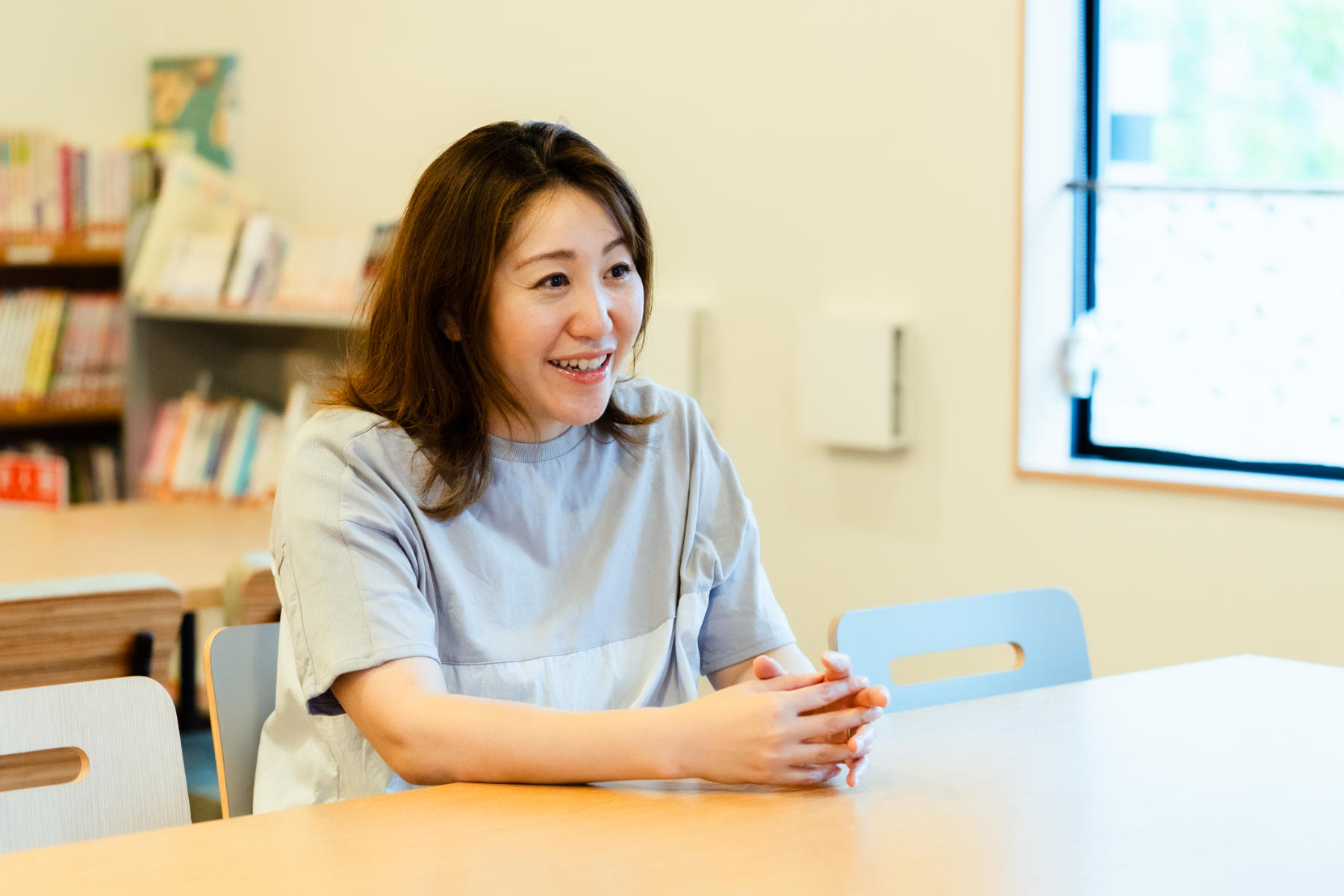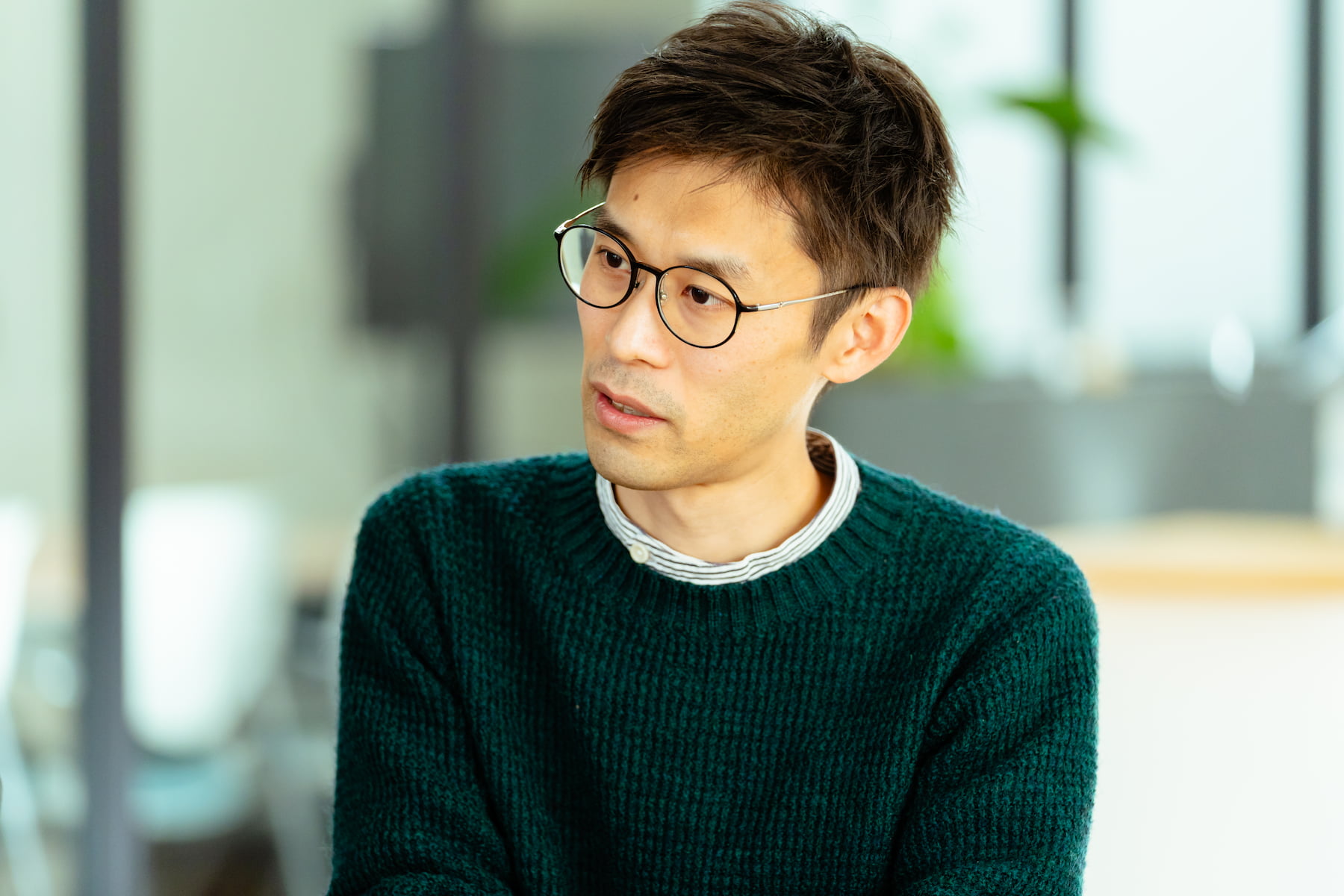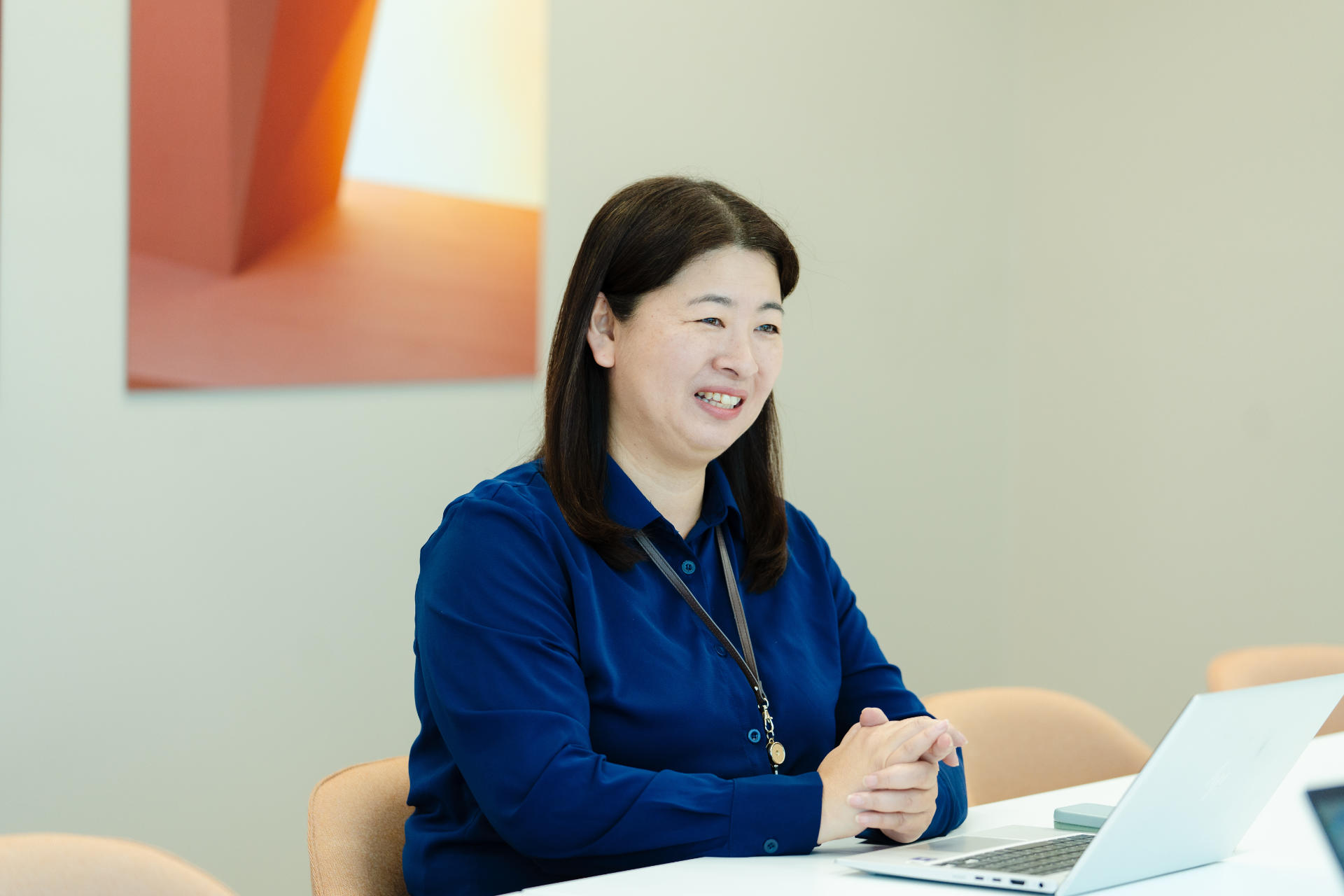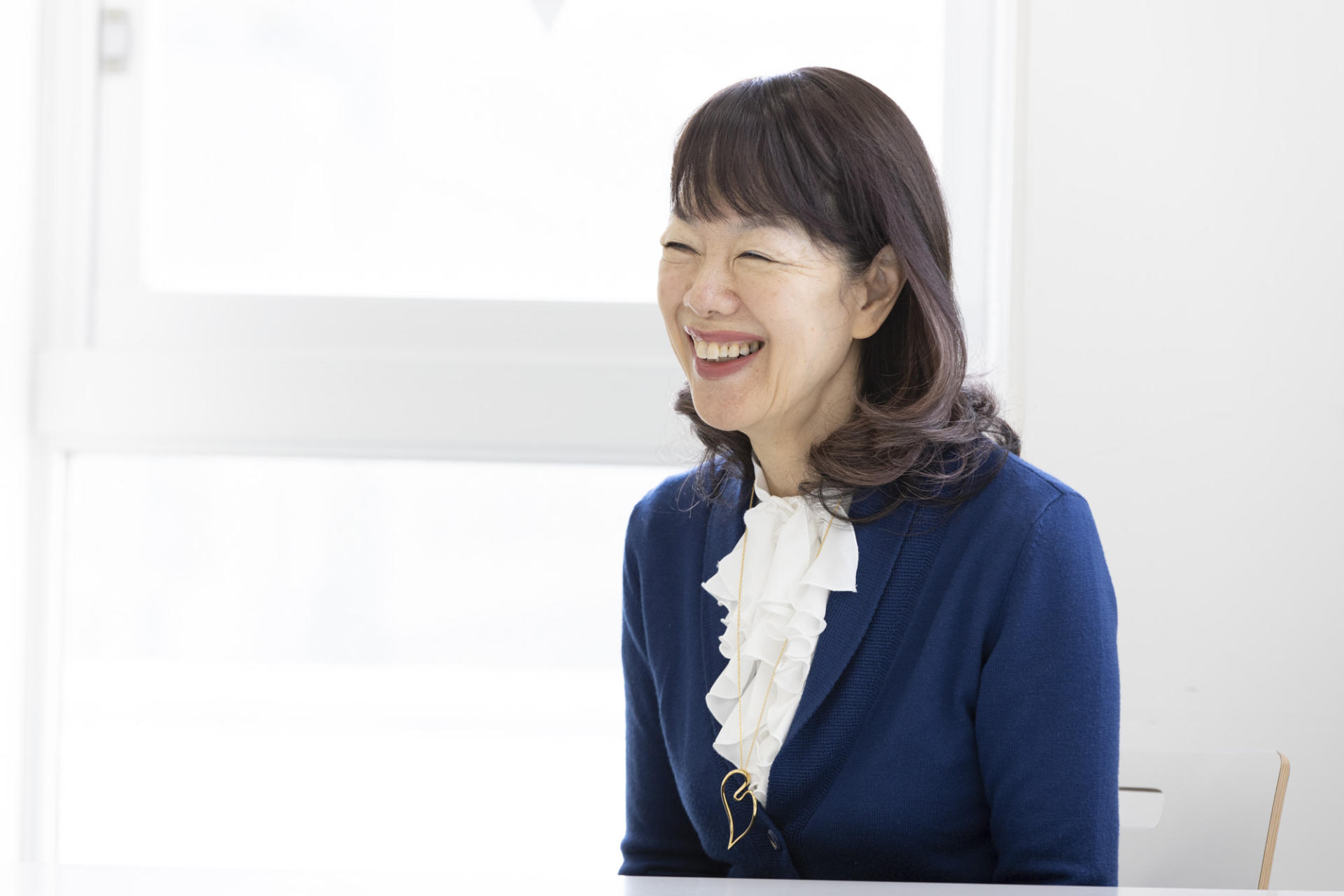CASE 32
Japan Manatee Education and Study Lab
(Apr 6, 2018 – present)
I didn't know left from right, but with your help, I've learned to do things for myself. Every day is a lot of fun.
When you hear the word "manatee," can you picture one in your mind? As a student, Mumi Kikuchi saw one at an aquarium, and that was enough to change her life. She is now one of Japan's leading manatee researchers, and has even appeared on a TV documentary. While working hard on her research, Kikuchi decided to broaden her activities, to spread the word about the plight of this endangered species. That's when she contacted Hitoshizuku, who helped with fundraising, teaching materials, grant applications, and the founding of the Japan Manatee Education and Study Lab. Kikuchi told us why she's involved in so many activities outside of her research, and what it's been like to collaborate with Hitoshizuku.
I wanted to make use of my research results.
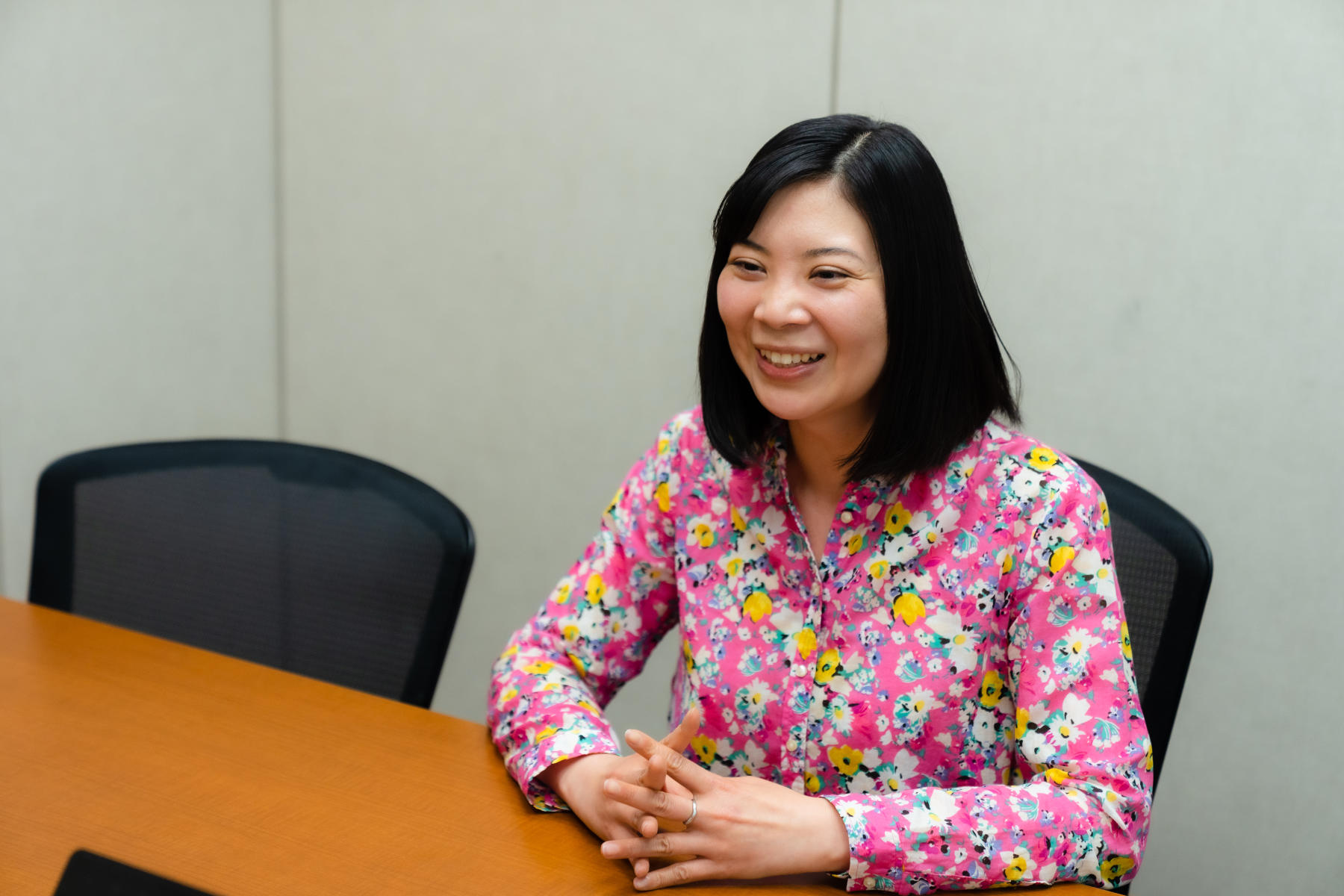
Mumi Kikuchi, Director of the Japan Manatee Education and Study Lab
Hiroshi Kokubo, President and CEO of Hitoshizuku Inc. (Kokubo):
You were introduced to Hitoshizuku via Asami Yamamoto, who at the time worked at WWF Japan. But what inspired your desire to expand the scope of your activities beyond research?
Mumi Kikuchi, Director of the Japan Manatee Education and Study Lab (Kikuchi):
Many of the international researchers I met had established companies or charities, planned conservation projects, or conducted environmental education. I was surrounded by people making use of their knowledge in very diverse ways. But in Japan, I mostly conducted research at my university. Giving lectures was my only opportunity to share information with others. I had the vague sense that I wanted to do something with my research results.
Kokubo:
Was that feeling triggered by any event in particular?
Kikuchi:
Before setting up the Study Lab, I was involved in a project that reintroduced rescued manatees into the wild, in Brazil. I participated in a local education program, run by a Brazilian Non-Governmental Organisation (NGO), and was asked questions that I’d already answered in previous papers. For example, the components of milk used to raise rescued manatees. I realized that research published some time ago hadn’t made its way to people on the ground.
I started to see how narrow researchers’ field of vision can be. It’s easy to exchange information with each other, but we may not understand what it is about manatees that people in the real world need to know. It made me feel uncomfortable. For people like us, the top priority isn’t to research endangered species, it’s to conserve them. Also, most people working with manatees in their natural habitat aren’t native English speakers. They often can’t read published papers, or can’t afford to pay for them. Our information wasn’t reaching the people who need it, and I felt that addressing that problem would help them carry out conservation activities with confidence.
Kokubo:
And while contemplating that issue, you contacted Hitoshizuku. You went to university with Asami Yamamoto, didn’t you?
Kikuchi:
I did. She told me that she worked in public relations. I wanted to speak to someone who wasn’t a researcher, so I asked her for advice.
I wanted to do something, but I didn’t know what. That’s when Hitoshizuku became my role model.
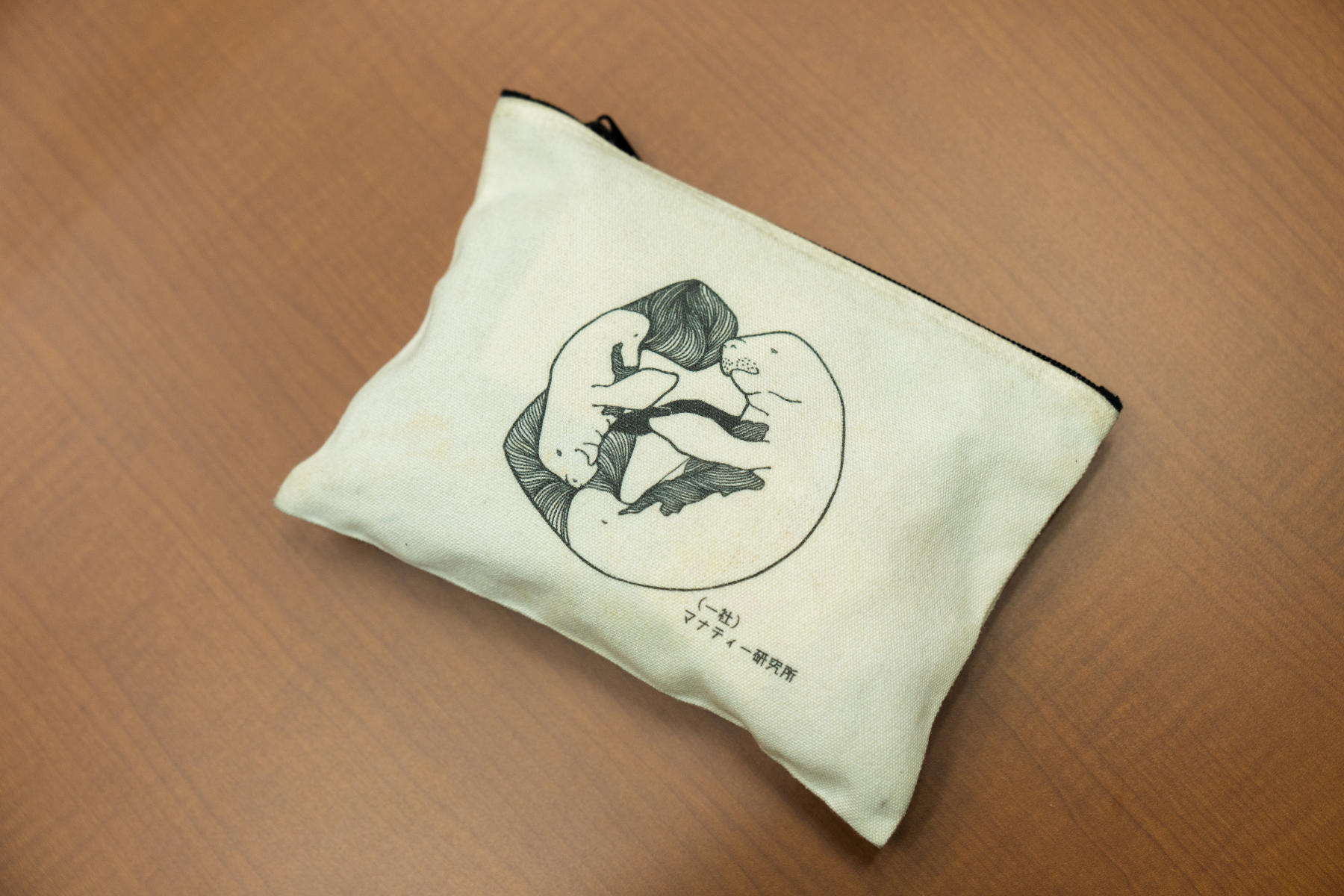
Pouches created for the Japan Manatee Education and Study Lab’s first fundraising campaign(https://www.manateelab.jp/)
Kokubo:
After establishing the Japan Manatee Education and Study Lab, we helped apply for funding, via the Japan Foundation’s “Sea and Japan Project.”
Kikuchi:
Up until that point, research was all I knew. You told me about the funding, and we were able to secure it.
Kokubo:
We were able to get your thoughts across. In Japan, very few researchers expand their activities, so you’re something of a pioneer. And I truly respect your mission, which is to communicate information taken for granted by researchers, and thus contribute to the overall goal: conserving manatees.
Kikuchi:
Thank you very much. I’ve connected with lots of other researchers that are interested in these activities, which I’m very pleased about.
Kokubo:
You carried out a children’s workshop as part of the Sea and Japan Project, in which you carefully explained difficult concepts in an easy-to-understand way. And we introduced you to someone that helped you to create VR educational content. Did you develop workshops and educational projects to deliver information to those who need it?
Kikuchi:
I think that people have become more aware of manatees and their endangered status, both in Japan and overseas. Having said that, I think that public awareness is still what’s holding conservation work back. It’s important to show consideration, and to adjust our behavior so that we can all coexist. If we express the beauty of the natural world to the next generation, they’ll want to live alongside nature. They’ll see how important it is, and that will give them many more options when they grow up.
Kokubo:
When teaching children about manatees, what responses have you had?
Kikuchi:
Well, one child sold manatee-related goods at an event. They told customers about manatees, and donated the proceeds to the Study Lab. Another child took what they learned from one of our workshops, conducted further self-study, and ended up winning a regional prize. I was delighted.
Also, when we conduct workshops for children, the parents often pay close attention. In a post-event survey, many say they learned a lot. That makes it all feel worthwhile.
You had the idea of making manatee-related goods, to give to people who donated to the Study Lab. Thanks to that campaign, some people became regular donors.
Kokubo:
I wanted to make some cute manatee products! But the campaign was inspired by your enthusiasm and good taste.
Kikuchi:
We made the products we wanted to own.
Kokubo:
And that’s fantastic. I’d say that your work overlaps with your personal ideals. Bringing those two things together is very powerful, so your approach really resonates with me.
What do you like about the support you receive from Hitoshizuku?
Kikuchi:
I wanted to expand my activities, but I didn’t know left from right. So I’m really glad I approached you. You gave me lots of advice about organizational structure. For the name, you recommended keeping it descriptive, and choosing “Japan Manatee Education and Study Lab.” Thank you very much for pointing me in the right direction.
Kokubo:
Through our conversations, I’ve seen that you value objectivity—you ask how something makes you feel. For example, you’ll look back at completed tasks, identify any negatives, and address them head-on. That approach matches ours. We’re always trying to be a company that’s honest with ourselves.
Kikuchi:
I’m really glad you were there to advise me. Now I think I’m unintentionally copying the way you answer questions, and the way you respond right away, even when busy!
Kokubo:
Sometimes I’m a bit late, which makes me feel bad. But you always reply instantly!
Kikuchi:
I do. Because I see your messages, and think, “So that’s what I should do!” By the way, you always wear striped clothing, don’t you? It represents borderless thinking. When I do interviews, I’ve started wearing clothes designed in South America, where manatees live. The outfit I’m wearing today is by a designer from Guatemala. So that’s another thing I learned from you.
Kokubo:
Ah, I didn’t realize I was having such an impact! I’m embarrassed, but also pleased.
Kikuchi:
When I was struggling with things at work, there weren’t any role models around me. I heard about Hitoshizuku, a company that offers logistical support for social good, but assumed you’d be a bit distant. Then we met, and you turned out to be calm and kind. I was grateful to find a role model I wanted to emulate as much as possible.
We’re getting better at writing PR material. Every day is a lot of fun.
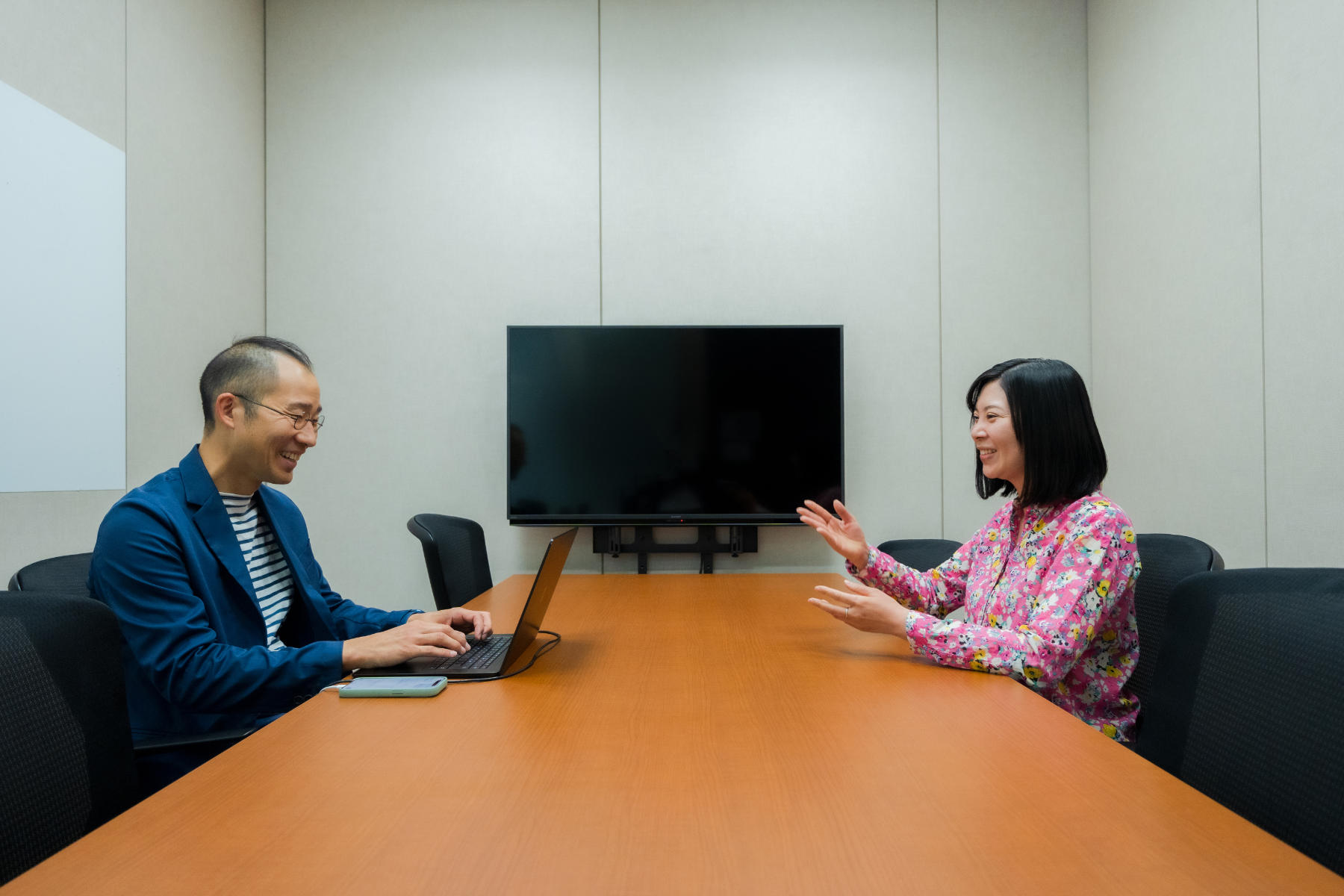
Kokubo:
What changes have there been since you started working with us?
Kikuchi:
You gave us lots of ideas that we wouldn’t have come up with on our own, such as a campaign featuring manatee-related goods, and VR environmental education. So that was a big change. Also, I had no idea how to promote what we were doing. I’d always ask for your advice, which taught me a lot. These days we’re getting better at writing and publishing our own PR material, but we still have a lot to learn.
Kokubo:
I’m glad you’re making progress! We try to pass on our know-how, so that our partners end up being able to do things for themselves.
Kikuchi:
I’m having a lot of fun. When solely working on research, I felt suffocated and vaguely stressed. But now I’m conducting education, making teaching materials, studying PR materials, and so on. Each new activity is really enjoyable. Finally, when people ask how I am, I can say, “Great!” I’m glad I embraced this challenge.
Kokubo:
So what’s your next challenge?
Kikuchi:
Right now we’re hosting events and workshops. But in the future I’d like to work with museums and aquariums. They provide a foundation for interested people, so it would be good to provide information and teaching materials.
We’re currently creating teaching materials about dugongs, which are related to manatees. It involves a very nice story; we’ll consult with you when we’ve finished it.
I always say this, but please don’t abandon us! If you disappeared, I’d lose my role model.
Kokubo:
I’m not going anywhere! Contact me whenever you like. My team will carry on giving our support.
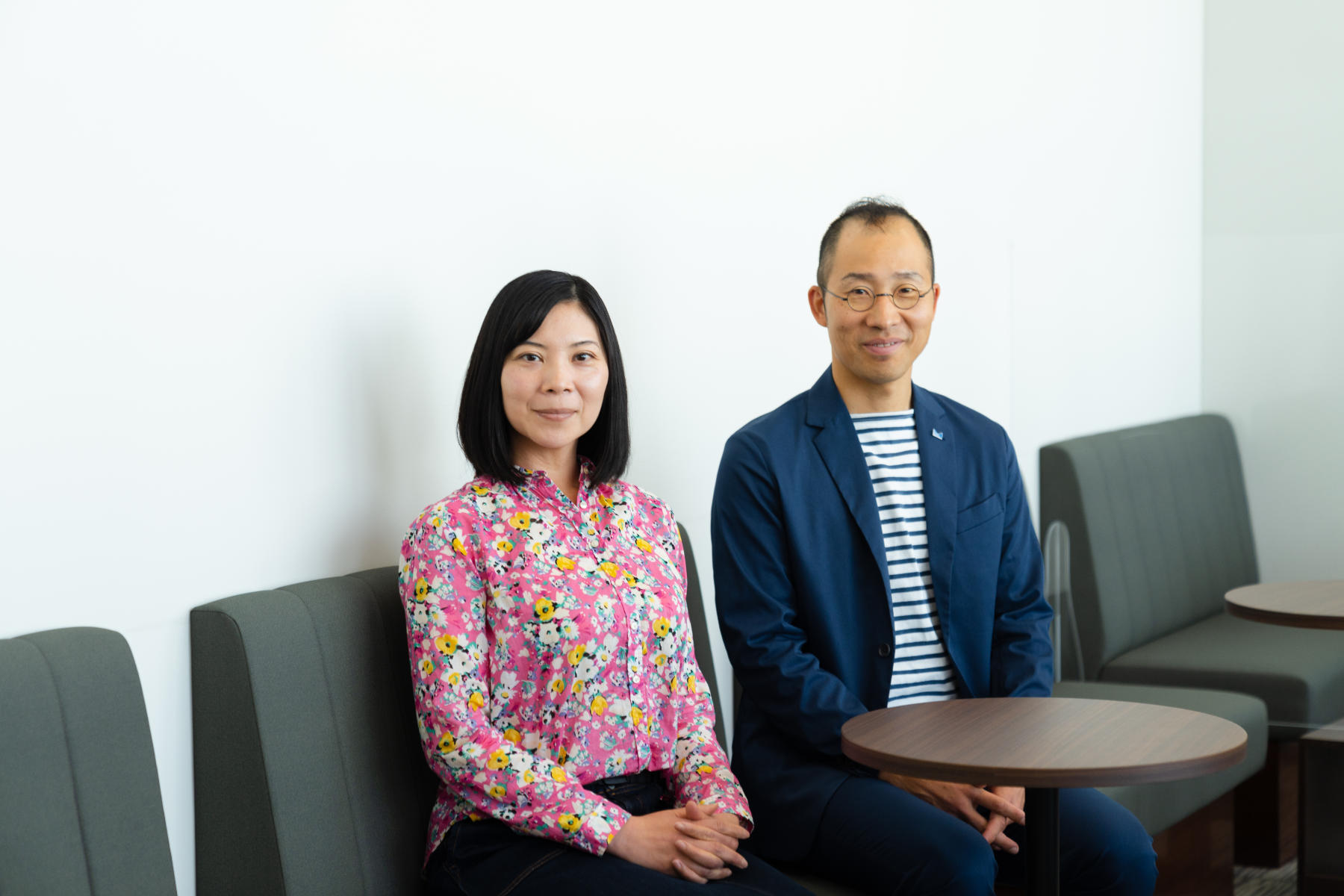
The Japan Foundation’s “Sea and Japan Project”
A national project set up by the Japan Foundation and the government. It aims to inspire concern and curiosity towards the ocean, particularly among children, leading to further action in tackling marine problems.(https://uminohi.jp/)
Photography: Hiroyuki Horigome
Editing: Mayuki Tsujihara
Translation editing: Satomi Furukawa
RECENT WORKS
| Name | Hitoshizuku Inc. |
| Address | 33 Nihonodori Naka-ku Yokohama Kanagawa 231-0021 JAPAN |
| Branch | Hamacho Odawara Kanagawa 250-0004 JAPAN |
| Phone | 81 045 900 8611 |
| info@hitoshizuku.co.jp |
| President | Hiroshi Kokubo |
| Established | March 2016 |
| Capital | 3,000,000yen |
| Business | Advertising & Public Relations Agency Planning & Produciton of Social Good Projects |
| Lawyer | Junna Tei / Yokohama First Law Office |
| Tax Advisor | Satoru Motokoide / Uniques Money Advisory |
| Labor and Social Security Attorney Office Work Innovation | |

